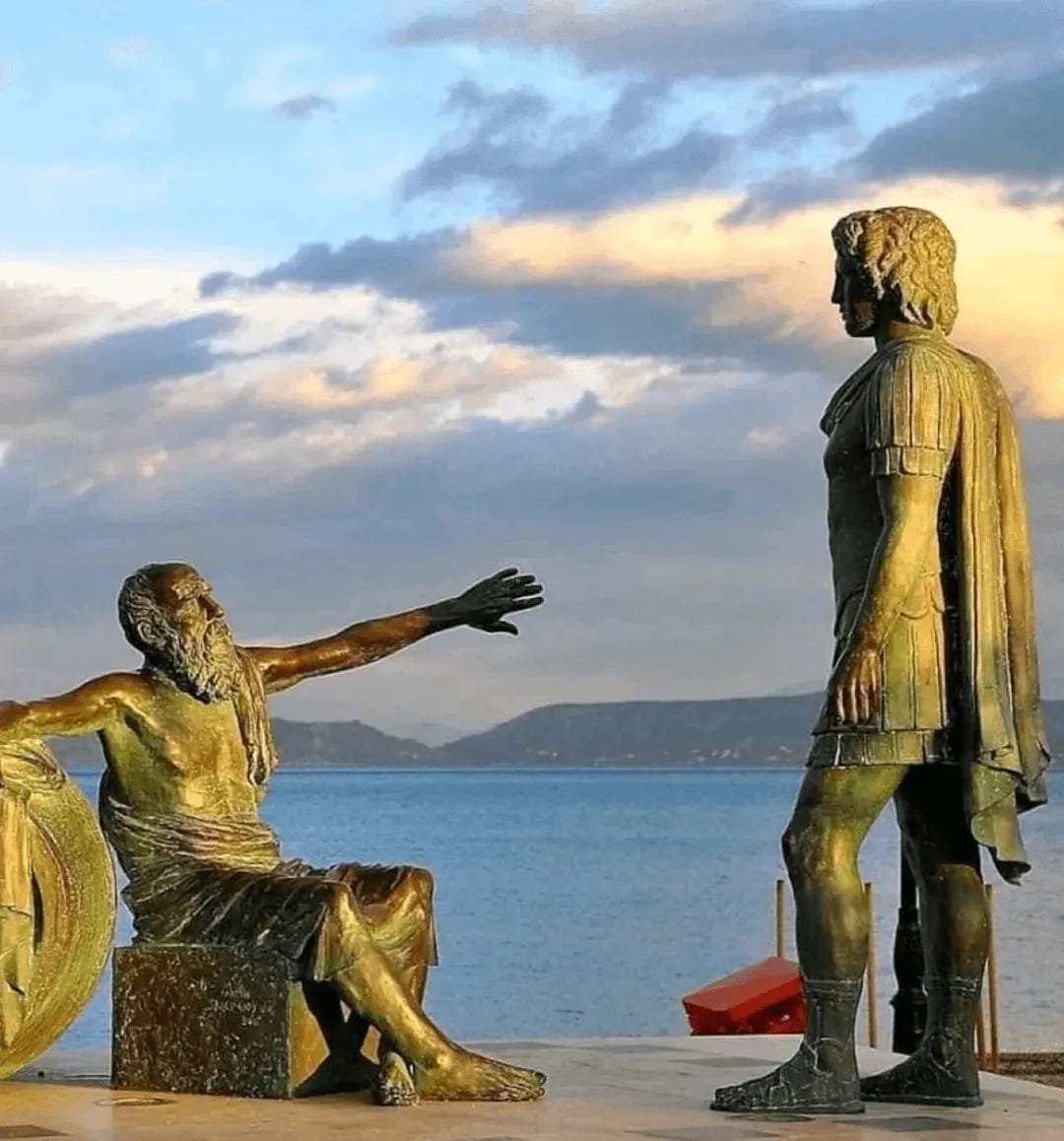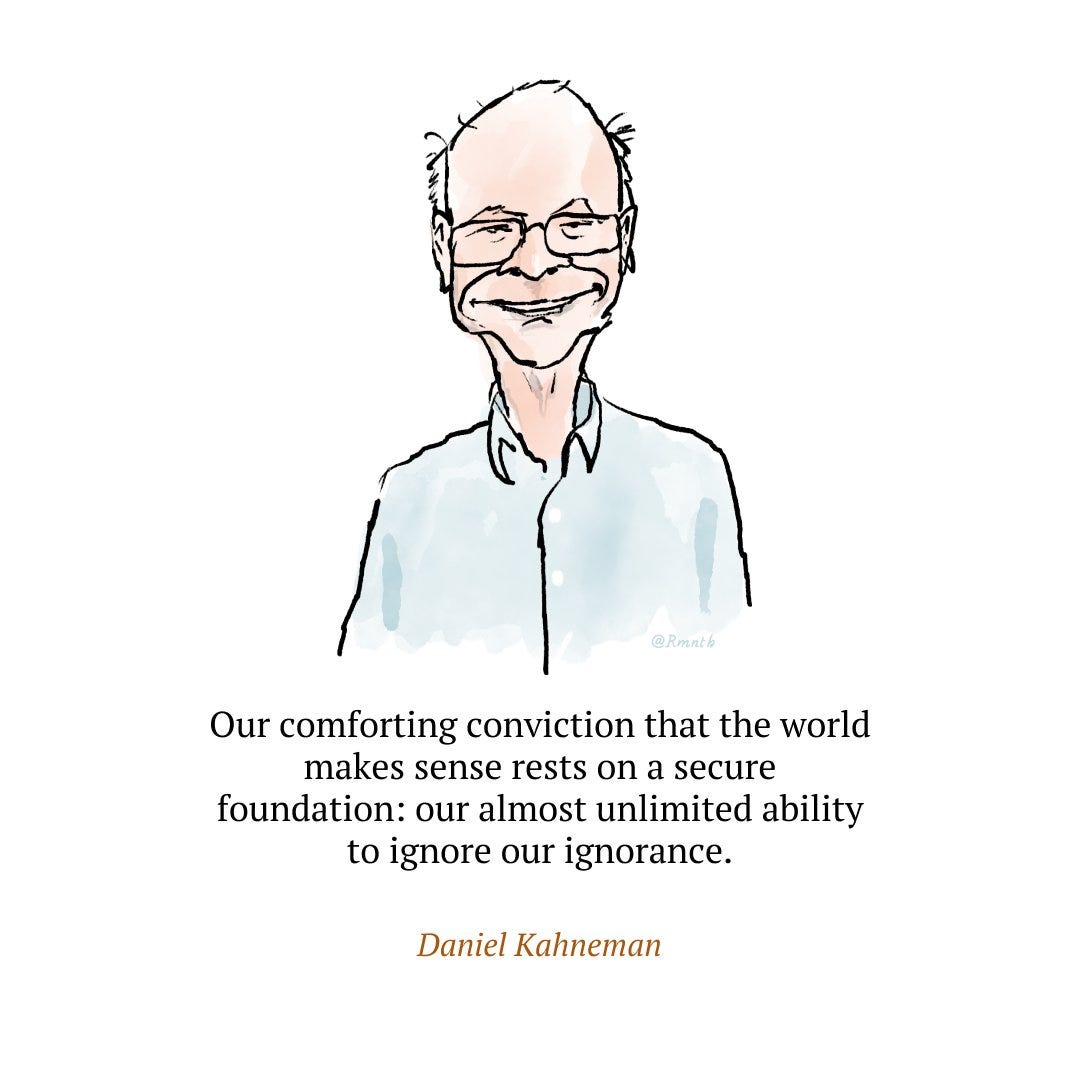The Limitless Life - Part 1
Ask DaaS #1: Crossing the "very narrow bridge" to a life free of unhealthy limitations requires that we shun the smiling snake oil merchants.
After listening to my Reintroduction to MISM, a subscriber wrote to me in an SMS message:
You know you sound like a professor. Have you considered lecturing?
I jokingly responded that, since the end of my corporate career, I considered everything and even tried most of it. I also described the transition to my post-corporate career in terms of the Exodus story. I didn't get into the details via SMS, but I think of my resignation in 2016 from my last job with a PR firm as an exit from Pharaoh's Egypt, and I think of my current work on Substack as the wilderness on the journey to the Promised Land. (Of course, how events map to stories is never so simple, but I’ll leave this idea for another post.)
The subscriber wrote back:
What would you do if you didn't have any limitations? And why have you not done it yet? I was asked this question once when I referred to myself as being in Mitzraim (Pharaoh's Egypt).
This unexpected question resonated, and I submitted it, on behalf of my subscriber, to Ask DaaS - Dialogue as a Service.
The next day, after writing a couple of paragraphs for my response, I realized that the question had sparked a storm of ideas. Instead of continuing to write, I paused and texted the subscriber: “I started working on my response to the question. Curious what that question did for you when you heard it. How did you respond to the question?”
My subscriber replied:
I realized that, in many ways, we really don’t have limitations. We are just scared. Maybe because we might be rejected? Someone might think we are reaching too high?
“A winner is a loser who tried one more time.” I often think of that sentence.
However, on a larger scale, we really only have the limitations we put on ourselves. For instance, why have I not pursued my passions? I spend too much time focusing on other people and their “issues”. I am “taking care of my family, raising kids, running after them,” and this whole time, I realize that many things will get done even if I’m not there. But when I step back and look at the bigger picture, I have to say that I’m proud and content.
Also, some questions don’t need direct and final answers. Sometimes the limitations are there for a short period of time. And, as I get older, I realize that everything is “temporary”. The good times and bad times don’t last forever. That’s what helps me know that it’s important to focus on the present and do what I consciously feel is right.
I’m so glad I asked what the initial question meant to my subscriber. If I hadn't asked, I probably would've over-analyzed the assumptions woven into the question as initially presented. After reading the subscriber’s reply, I felt grateful because not only did it send me in a more fruitful direction, it also answered a couple of questions I often ask myself as a Substack publisher:
What do people want?
What do they want to read or hear to help them live the lives they want?
This particular submission to DaaS reminded me that people want the limitless life. It's not that they're in denial about the daily reality of inescapable limitations. They may even notice that some limitations bring out the best in them. But they seek liberation from unhealthy limitations.
Below is my response. If you’d like to submit a question, don’t hold back.
If you prefer to submit your question or comment privately, email me at daasnow@proton.me.
What If
So, what would I do if I didn't have any limitations? The relief would change everything and nothing. My mission wouldn't change. I would simply pursue my mission without limitations.
In response to the second part of the question — “and why haven't you done it yet?” — I point out that the premise is wrong in my case. It's not that I haven't done it yet, but that I haven't stopped doing it — pretty much since childhood, and certainly since September 1992, which is when I started college.
I haven’t stopped doing it, but I've been doing it within my limitations. If the limitations were removed, I would do it with greater joy, wider reach, and fewer distractions.
What is “it”?
What exactly have I been doing? Simple: I've been reading and writing. And the removal of limitations may simply mean that I would read and write more. Or it may mean that I would read and write more freely, from more comfortable accommodations, with better access to my sources, etc. It may also mean that I would take amazing trips and hire editors, writers, researchers, IT specialists, archivists, and assistants to help me advance my mission.
Reading and writing isn't my mission, but it's a meaning-making foundation from which I have supported numerous missions in the past. Through my current work on Substack, I am:
Naming the Problem. See Second-Order Ignorance (SOI): Learning to See the Problem.
Naming the Cure. See Kosher Media: The Anti-Kleptocracy.
Naming the Price. See my recently updated Subscription Tiers.
Without limitations, I would read and write more about Jewishness After Spinoza: Radically Enlightened Responses to Second-Order Ignorance, and I would tell anyone willing to listen that the “powers and principalities” that attacked Spinoza through the Lords of the Ma'Amad are still with us under ever-changing names. These are the same powers and principalities responsible for the burning of Giordano Bruno and for countless other repressive responses to reason.
Without limitations, I would go beyond reading and writing about the ancient allegory about the elephant and blind men. (My chapter on SOI is built on this allegory). I would also commission a sculpture in my own neighborhood that expresses one of my main messages to the Blind Gropers (BG): Stand out of my light.
What wouldn't I do?
Even without any limitations, I still wouldn't advertise because I would still want to practice what I preach. As I pointed out in Start a Substack, advertising is an environmental toxin produced by a vast military operation.
Even without any limitations, I still wouldn't switch sides in the great division of our world that Wendell Berry wrote about in 2000:
It's easy for me to imagine that the next great division of the world will be between the people who wish to live as creatures and people who wish to live as machines.
Even without limitations, I would stay with Team Human.
No Final Answers
Final answers have a terrible track record. But they often have irresistible appeal. (See my post about Cute Monsters). Sometimes, I recall a quote attributed to Stalin: “Death solves all problems: No man, no problem.” This is the answer of The Machine, and its way of thinking and being in the world is rising to total dominance. But I heard from multiple sources I trust that this too shall pass.
Across the Very Narrow Bridge
This is probably the first time I’m writing about the limitless life, but in several essays, I’ve written about the path to wholeness. Regardless of how we describe the path, it demands utmost vigilance because it takes us across the very narrow bridge mentioned in the old Hasidic song Kol Ha'Olam Kulo:
“The whole entire world is a very narrow bridge, and the important thing is to have no fear at all.”
Tragically, this bridge is drenched in snake oil, dangerously crowded with smiling merchants who want to help you awaken the giant within, cleanse your chakras, rebalance your neurotransmitters, appease the gods, or 10x your income. Caveat Emptor!
RIP: Daniel Kahneman
As I scheduled this post for publication, I saw headlines about the death of Daniel Kahneman, the Nobel-winning student of the limits of rationality.
If this response stirred up any questions in your mind, Ask DaaS.







Here's an interesting approach to facing one's limitations.
https://youtube.com/shorts/GFvoNx0j0vE?si=KlBjkeV10cJjgmf1